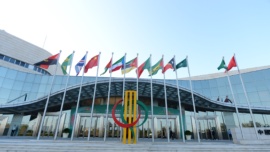The administration carries out many public consultation processes concerning the most varied subjects. Some end up without much ado about the results. Others obtain greater visibility in the media. The report on the results of the consultation on the ‘management and operation’ of the light rail system falls into the second category.
One of the most significant questions turned out to be the application of fines to the persons who refuse to cede the priority seats to those entitled to them. The subject itself may seem minor, and the arguments not too strong. But the conclusions advanced in the report are not without consequences, and their analysis may be instructive.
Apparently, a majority of people who contemplated the subject thought that it was inappropriate to apply fines to people who might refuse to surrender the priority places to those for whom they are meant. The argument used may be broken into two parts. First, people indicated that it might be difficult to identify the persons who need to use them. Second, they added, in such circumstances, it was likely that other ‘social problems’ might arise. None of the arguments seem strong in abstract or practical terms, but their consequences are noteworthy.
Granted, some people may look younger than they are; pregnancies may not be evident, especially in their early stages, and so on. The weight of the argument is, however, doubtful. Elder people, pregnant women, people with physical difficulties, or persons accompanied by small children are usually easily recognizable. It takes some flight of reasoning to conclude that because there may be some cases where their ‘condition’ might be difficult to establish, then that asocial behavior should not be penalized. Furthermore, the vague ‘social problems’ are not identified and assessed; they do not provide any substantial support to the conclusion reached. Without logical support, the acceptance of the suggestion is made, presumably, because of either convenience or popularity – or both.
The government acquiesced, adding another argument: that it did not raise operational problems. Now think about the possible implications. Hardly any of the ‘finable’ offenses mentioned in the consultation raise operational problems. Why not abolish them all then? For example, trains can operate whether or not some (or all) users bought their tickets. The report conclusions make the argument for not fining them unbeatable. And free trips would be popular, as any consultation on the subject would undoubtedly prove.























